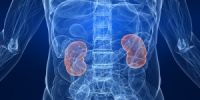Article
Treatment Options for Patients with Hyponatremia
Author(s):
Experts at Kidney Week 2012 discuss several treatment options for hyponatremia, including fluid restriction, loop diuretics, and the use of selective vasopressin V2-receptor antagonists.
Experts at Kidney Week 2012 discuss several treatment options for hyponatremia, including fluid restriction, loop diuretics, and the use of selective vasopressin V2-receptor antagonists.

Mitchell Halperin, MD, and other experts provided a nephrologist’s perspective on recognizing and treating cases of hypernatremia during a lecture at Kidney Week 2012 in San Diego and sponsored by the American Society of Neprhology.
Simply put hyponatremia is a dilutional problem that happens when the body becomes overhydrated and water intake exceeds renal water excretion, according to the speakers who addressed how the topic relates to other medical conditions.
Mitchell Halperin, MD, Division of Nephrology, St. Michael’s Hospital, Toronto, Canada, focused his talk on hyponatremia due to syndrome of inappropriate antidiuretic hormone secretion (SIADH), which is characterized by excessive release of antidiuretic hormone. Halperin reviewed a case of a young medical student with SIADH who was on such a high-salt diet that his hyponatremia could be treated by restricting how much water he drank.
“I’m not saying that every patient who has hypernatremia should be given a high salt intake,” said Halperin, summarizing the case. “Certainly if they are hypertensive you wouldn’t do that. But if they do have a high salt intake, it may be worth trying to restrict their water as much as they can tolerate.”
Halperin also discussed other treatment options to correct hyponatremia in patients with SIADH, including the use of loop diuretics and selective vasopressin V2-receptor antagonists.
Biff Palmer, MD, professor of Internal Medicine, Division of Nephrology at University of Texas Southwestern Medical Center talked about hyponatremia in patients who have congestive heart failure. He highlighted the case of a patient with coronary artery disease, who presents with new and worsening heart failure, mild acute kidney injury, and hyponatremia, a condition defined by low serum sodium levels.
“Hyponatremia not only is a common electrolyte disorder in patients admitted to the hospital, but it clearly seems to be associated as marker of worse outcomes and that’s true even in the general population,” Palmer said.
The same is true in heart failure as among the general population, said Palmer noting that hyponatremia is common in heart failure and it seems to be a marker of increased morbidity and mortality. He presented data that showed that hyponatremia was present in roughly 20% of patients from six trials related to congestive heart failure.
“So the bottom line is that there is a strong graded relationship between the presence of hyponatremia and the subsequent morbidity and mortality in patients who have congestive heart failure,” Palmer said.
In discussing treatment options, Palmer said that V2-receptor antagonists are effective therapy to correct hyponatremia and could potentially improve volume overload in patients with coronary heart failure, without causing further disturbances in serum electrolytes or hemodynamics.




